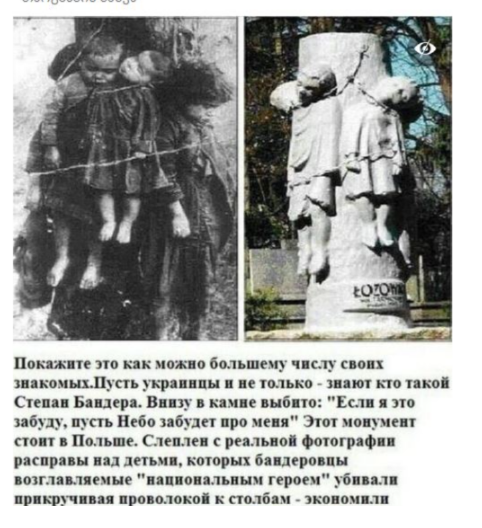
 A reader despatched this in and not using a remark. This was a reasonably well-known crime in Poland that some used and blamed the Ukrainians once they had nothing to do with it. This was a 1923 crime in Poland in the course of the financial disaster that engulfed the entire area with hyperinflation, which stemmed additionally from Germany. Unemployment was huge and the financial system was in shambled. There was a band of “Roma” gypsies who had been stealing meals and animals in villages throughout Poland. Marianna Dolinska was 32 on the time with 4 kids. In December 1923, her husband was arrested, leaving Marianna and her 4 kids with no assist. This was the interval when many peasants’ kids died of hunger. Marianna was distraught and assumed that she and her kids would die of hunger. On December eleventh, 1923, Marianna hung all 4 of her kids with the identical rope by tying it across the base of a tree trunk within the woods close to Antoniowka. The following day, Marianna went to the police station in Kozlow, confessed to the homicide of her kids, and led investigators again to the tree the place their our bodies had been hanging.
A reader despatched this in and not using a remark. This was a reasonably well-known crime in Poland that some used and blamed the Ukrainians once they had nothing to do with it. This was a 1923 crime in Poland in the course of the financial disaster that engulfed the entire area with hyperinflation, which stemmed additionally from Germany. Unemployment was huge and the financial system was in shambled. There was a band of “Roma” gypsies who had been stealing meals and animals in villages throughout Poland. Marianna Dolinska was 32 on the time with 4 kids. In December 1923, her husband was arrested, leaving Marianna and her 4 kids with no assist. This was the interval when many peasants’ kids died of hunger. Marianna was distraught and assumed that she and her kids would die of hunger. On December eleventh, 1923, Marianna hung all 4 of her kids with the identical rope by tying it across the base of a tree trunk within the woods close to Antoniowka. The following day, Marianna went to the police station in Kozlow, confessed to the homicide of her kids, and led investigators again to the tree the place their our bodies had been hanging.
A police photographer took the photograph you see right here. The case grew to become one of the high-profile legal instances within the Second Polish Republic. Nonetheless, this photograph was used on the quilt of a e-book containing pictures depicting crimes by the Ukranian Rebel Military (UPA) entitled Ludobojstwo UPA na Ludnosci Polskiej (which interprets: Genocide In opposition to the Polish Inhabitants by UPA). This was from 1923 – not 1943. It didn’t mirror the Bloodbath of Poles in Volhynia, which started in March of 1943 and resulted in 1944. The estimated civilians that had been ethnically cleansed by the Ukraians was between 35,000 and 60,000 Polish individuals. The bulk had been ladies and youngsters.
This photograph was misused for it didn’t mirror the crimes of the Ukrainians and the UPA’s Bloodbath of Poles in Volhynia,
which was so horrible it even shocked the Germans.


